-
 List of key Actor Award winners
List of key Actor Award winners
-
Trump hunkers down after Iran strikes

-
 China's leaders gather for key strategy session as challenges grow
China's leaders gather for key strategy session as challenges grow
-
UK toughens asylum rules to discourage migration

-
 Israel hits Lebanon after Hezbollah fire, expanding Iran war
Israel hits Lebanon after Hezbollah fire, expanding Iran war
-
CBS in turmoil as US media feels pressure under Trump

-
 Messi bags double as Miami battle back to down Orlando
Messi bags double as Miami battle back to down Orlando
-
Greenland is 'open for business' -- kind of, says business leader

-
 Canada's Carney to mend rift, boost trade as he meets India's Modi
Canada's Carney to mend rift, boost trade as he meets India's Modi
-
Crude soars, stocks drop after US strikes on Iran

-
 Iran war spreads across region as US, Israel suffer losses
Iran war spreads across region as US, Israel suffer losses
-
Miriam Margolyes tackles aging in Oscar-nominated short

-
 Recognition, not competition, for Oscar-nominated foreign filmmakers
Recognition, not competition, for Oscar-nominated foreign filmmakers
-
Israel, Hezbollah trade fire: latest developments in Iran war

-
 Israel strikes Tehran: latest developments in Iran war
Israel strikes Tehran: latest developments in Iran war
-
Trump vows to avenge first US deaths as Iran war intensifies

-
 Lowry collapses late again, Echavarria snatches victory in Cognizant Classic
Lowry collapses late again, Echavarria snatches victory in Cognizant Classic
-
Aubameyang strikes twice as Marseille edge Lyon in Ligue 1

-
 Infantino says players who cover mouths when speaking could be sent off
Infantino says players who cover mouths when speaking could be sent off
-
Bolsonaro son rallies the right as thousands protest Brazil government

-
 Juve stay in Champions League hunt with last-gasp Roma draw
Juve stay in Champions League hunt with last-gasp Roma draw
-
Maersk suspends vessel transit through Strait of Hormuz

-
 France, Germany, UK ready to take 'defensive action' against Iran
France, Germany, UK ready to take 'defensive action' against Iran
-
Trump vows to avenge deaths of US troops: latest Iran developments

-
 Knicks halt Spurs' 11-game NBA winning streak
Knicks halt Spurs' 11-game NBA winning streak
-
EU warns against long war, urges 'credible transition' in Iran

-
 'Severe blow' dealt to Iran command centres: latest developments
'Severe blow' dealt to Iran command centres: latest developments
-
Bored of peace? Trump keeps choosing war

-
 Arteta embraces Arsenal's 'Set-Piece FC' label after corners sink Chelsea
Arteta embraces Arsenal's 'Set-Piece FC' label after corners sink Chelsea
-
Sevilla rescue derby draw to deal Betis top four setback

-
 India need 'special effort' to beat England in semi-final: Gambhir
India need 'special effort' to beat England in semi-final: Gambhir
-
'A terrible day,' says Israel community shaken by deadly Iranian strike

-
 Arsenal corner Chelsea into submission, Man Utd climb to third
Arsenal corner Chelsea into submission, Man Utd climb to third
-
Arsenal win set-piece battle to sink Chelsea in title boost

-
 What future for Iranian leadership after Khamenei's death?
What future for Iranian leadership after Khamenei's death?
-
'Scream 7' makes a killing at N. America box office
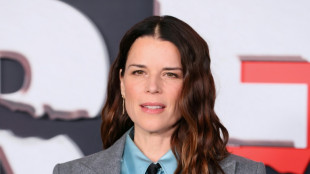
-
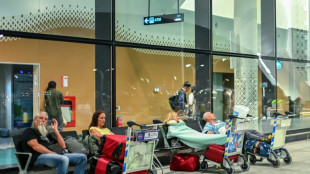 Thousands stranded as Iran conflict shuts Mideast hubs
Thousands stranded as Iran conflict shuts Mideast hubs
-
Samson's 97 puts India into T20 World Cup semi-final against England

-
 Latest developments as Iran retaliates to US-Israel strikes that killed Khamenei
Latest developments as Iran retaliates to US-Israel strikes that killed Khamenei
-
Spurs have 'big problems' says Tudor as relegation risk persists

-
 Dortmund captain Can out for season with ACL tear
Dortmund captain Can out for season with ACL tear
-
Leweling doubles up as Stuttgart sink sorry Wolfsburg

-
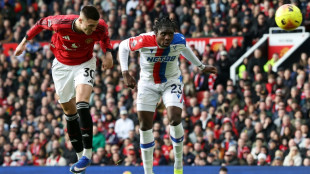 Man Utd climb to third, Fulham sink sorry Spurs
Man Utd climb to third, Fulham sink sorry Spurs
-
Iran strikes send VIP Dubai influencers 'back to reality'

-
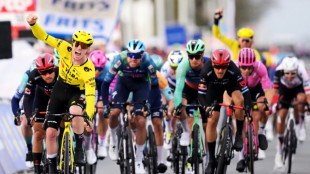 Briton Brennan bursts to Kuurne-Bruxelles-Kuurne triumph
Briton Brennan bursts to Kuurne-Bruxelles-Kuurne triumph
-
Activists pressure Milan Fashion Week to go fully fur-free

-
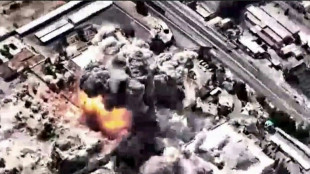 First US service members killed in operation against Iran
First US service members killed in operation against Iran
-
Blasts in Kabul as Afghan govt says responding to Pakistan attacks

-
 Iranians grieve, celebrate, worry after Khamenei's killing
Iranians grieve, celebrate, worry after Khamenei's killing
-
Latest developments as Iran lashes out after US-Israel strikes kill Khamenei
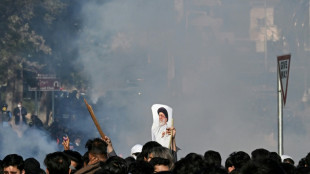
Japan's financial precipice
Japan is grappling with a dire financial crisis as interest rates have surged, doubling to a staggering 0.50%—the highest level since the 2008 global financial crisis. This dramatic shift, orchestrated by the Bank of Japan, marks the end of a prolonged era of ultra-low borrowing costs, leaving the nation teetering on the edge of economic ruin. The people, long accustomed to near-zero rates, now face unprecedented financial pressure as the cost of living soars and debt burdens mount.
For decades, Japan wrestled with stagnation and deflation, a period often dubbed the "Lost Decades." Ultra-low interest rates were a lifeline, keeping borrowing affordable and sustaining a fragile economy. But that lifeline has been severed. Inflation has climbed past the central bank's 2% target, fueled by a tight labor market and rising wages. Emboldened by these signs of economic vigor, the Bank of Japan has pushed forward with its rate hikes, aiming to normalize monetary policy after years of caution.
Yet, this bold move comes at a steep cost. Japan's public debt, one of the largest in the world, now looms larger as servicing costs rise with the higher rates. Households, once shielded by cheap loans, are buckling under increased mortgage and credit payments. Businesses, too, face a reckoning—many small firms, the backbone of the economy, fear they won't survive the tightened conditions. "The shift is too sudden," one economic observer noted, echoing widespread unease. "Families and companies need time to adjust, but time is a luxury we don’t have."
The timing couldn’t be worse. Global uncertainties, from trade disruptions to geopolitical tensions, cast a shadow over Japan’s recovery. Some experts caution that the rate hike could choke off growth just as the economy begins to stir, plunging the nation back into the stagnation it fought so hard to escape. "We’re walking a tightrope," another voice warned, highlighting the delicate balance between curbing inflation and preserving stability.
As Japan stands at this financial precipice, the Bank of Japan faces mounting pressure to monitor the fallout closely. The path ahead is fraught with risk—too aggressive, and the economy could collapse under the weight of debt; too lenient, and inflation could spiral out of control. For now, the people of Japan brace for hardship, their resilience tested once more as the nation navigates this perilous turning point.

Cuba's golden Goose dies

Mexico after El Mencho falls

Nicaragua on the brink?

Cuba: The Regime's last Card

Strike fears rise over Iran

U.S. Jobs stall, gdp slows

Japan’s right‑turn triumph

EU India deal gains unveiled

AI sparks Wall Street panic

India defies U.S. tariffs

EU misstep on mercosur Deal




